Policy recommendations from a mental health therapist in training
Changing my career and becoming a therapist revealed ways our country can grow its mental health workforce.
By Karin Cooke, Master’s in Counseling Degree Candidate, and Director, Kaiser Permanente International
When I joined Kaiser Permanente in 2008, it never occurred to me that one day I'd shift from the business and technology side of health care to a clinical role. But, in 2021, I began to reflect on my personal journey, what I valued, and how I wanted to use my life to help others. Throughout my reflections, mental health care kept coming to mind. Likely this was because of the many times the field crossed paths with my work advancing IT innovation and later leading Kaiser Permanente International.
As I began reimagining my life, I learned about the Kaiser Permanente Mental Health Scholars Academy, a new Kaiser Permanente effort to help address our country’s shortage of mental health professionals. MHSA provides scholarships for advanced degrees, helps students complete their mandatory clinical training hours, and offers mentoring opportunities. I was intrigued and took its launch in 2021 as a sign to explore a career in mental health care.
Challenges to joining the mental health care workforce
I began by researching and asking colleagues questions. I wanted to learn what challenges aspiring mental health care professionals faced. Could MHSA help overcome those hurdles?
I learned that many people who want to enter the field can’t afford to. A degree can cost tens of thousands of dollars for tuition and fees alone.
Also, it’s difficult to earn the required clinical hours to practice while still working full time. For many aspiring clinicians, this is a larger hurdle than affording tuition. Getting unpaid clinical hours often requires people to cut back on hours at their paid job. Not everyone can afford to do that.
Additionally, coordinating work schedules and responsibilities around clinical hour requirements is difficult. MHSA removes many of these barriers. The program works with Kaiser Permanente training programs to schedule clinical hours around the participant’s current job responsibilities. This makes it easier for participants to earn the clinical hours they need.
Learning how to start and move forward in a new profession is also a big challenge. This is especially true for people from groups that are underrepresented in the mental health care workforce. MHSA's mentoring program helps with this. It connects scholars with mentors from Kaiser Permanente for monthly talks. These talks help aspiring mental health professionals to be successful in the field. Mentors give support, share expert knowledge, and offer tools to help manage school, clinical work, and planning for postgraduate clinical opportunities.
For me, what MHSA offered was invaluable. With the support of my management at Kaiser Permanente and my family, I applied to MHSA in 2021. I was thrilled to be accepted as part of the first master's in clinical counseling class at the Kaiser Permanente School of Allied Health Sciences.
Enabling a diversity of professionals to enter the workforce
Once I began classes, I realized how MHSA enabled my classmates, who are from diverse ethnic, racial, and economic backgrounds, to become mental health care professionals.
One of my classmates, Metti Haile, is a diabetes clinic program assistant at the Kaiser Permanente Santa Clara Medical Center. She saw patients struggle to manage their diabetes treatment and their mental health. MHSA allowed Metti to work at the clinic she loves while becoming a mental health care provider. The program helped Metti advocate for a flexible schedule. This enabled her to gain a degree and complete the required clinical hours. The program also worked with the local unions to secure wage replacement financial support. The pay ensured Metti didn’t face financial hardship while pursuing her dream.
Another classmate, Lloyd Lacayanga, is a Kaiser Permanente regulatory consultant. He always wanted to pursue psychology and serve his community as a counselor. However, the cost deterred him. When the opportunity arose to get a master’s in counseling with a scholarship that covers 75% of his tuition, he made the leap.
What policymakers can learn from the MHSA program
MHSA offers important lessons for policymakers seeking to address our country's shortage of mental health care professionals. By investing in scholarships, loan forgiveness, stipend programs, and mentoring, as well as streamlining clinical hour requirements, we can enable more aspiring professionals from diverse backgrounds to enter the field. Implementing MHSA's approach at a national level has the potential to create opportunities for a wider range of individuals to contribute to the health and well-being of people across our country.
-
Social Share
- Share Policy Recommendations From a Mental Health Therapist in Training on Pinterest
- Share Policy Recommendations From a Mental Health Therapist in Training on LinkedIn
- Share Policy Recommendations From a Mental Health Therapist in Training on Twitter
- Share Policy Recommendations From a Mental Health Therapist in Training on Facebook
- Print Policy Recommendations From a Mental Health Therapist in Training
- Email Policy Recommendations From a Mental Health Therapist in Training

February 18, 2026
A better approach to preventing chronic conditions
With the right support from our policy leaders, we can help ensure fewer …

January 9, 2026
Can ‘airport divorce’ lower travel stress?
HuffPost

January 7, 2026
Building confidence and wellness through coaching
Kaiser Permanente and the Los Angeles Sports & Entertainment Commission …

December 15, 2025
‘Free’ drug samples aren’t really free
Pharmaceutical marketing hurts patient care and drives up costs. At Kaiser …

December 9, 2025
Buprenorphine saves lives. Why can’t more patients get it?
Policy changes are crucial for better opioid addiction treatment.

November 19, 2025
Will AI rules leave small hospitals behind?
Policymakers can design regulations that protect patients and work for …

October 28, 2025
California employers, meet our smarter Choice plan
Kaiser Permanente Plus™ more affordably adds some out-of-network flexibility …

October 21, 2025
Health coverage is key to early breast cancer detection
Timely screenings save lives and lower costs, but millions of people miss …

October 20, 2025
Building health connections in Colorado
Too many people face barriers trying to achieve good health. We partner …

September 17, 2025
More than a call
How the Kaiser Permanente Community Support Hub® call center helped one …

September 5, 2025
Congress must act to keep health insurance affordable
Enhanced premium tax credits help millions of people afford health insurance. …
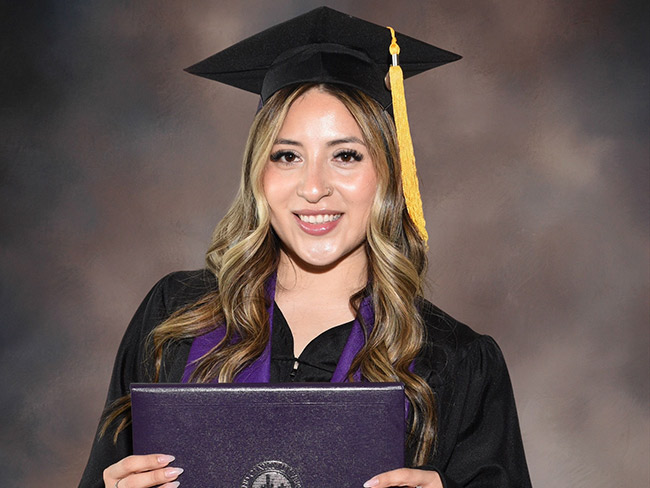
August 11, 2025
Growing the Northwest’s mental health care workforce
Our Mental Health Workforce Accelerator program tackles the urgent need …
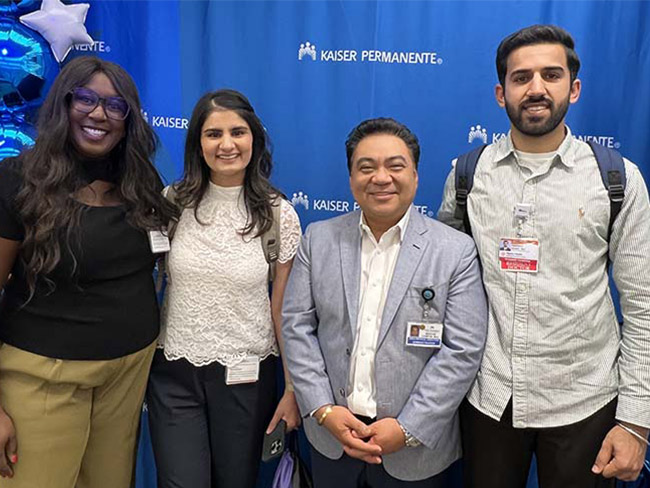
August 11, 2025
Investing in the future of health care
Kaiser Permanente is actively partnering to expand the physician career …

August 5, 2025
Pharmaceutical marketing hurts patient care
At Kaiser Permanente, our doctors and pharmacists work together to ensure …

July 22, 2025
Mental health care without borders
When clinicians can practice across state lines, more people can get the …

July 15, 2025
A new chapter of Kaiser Permanente’s hospital care is born
Kaiser Permanente physicians and staff are now caring for patients at several …

June 26, 2025
Our commitment to vaccine access
Kaiser Permanente’s statement on vaccine access.

June 18, 2025
Helping youth connect, move, and thrive
After the third year of Kaiser Permanente and Los Angeles Football Club’s …

June 17, 2025
We must grow the health care workforce
At Kaiser Permanente, we educate future clinicians and offer programs that …

June 16, 2025
Getting care while traveling made easier
Kaiser Permanente’s agreement with Cigna provides our members with more …

May 22, 2025
Los Angeles area wildfires: How we helped our communities
We moved quickly to ensure that people in our communities could still get …

May 21, 2025
Trust unlocks AI’s potential in health care
Artificial intelligence can improve health care by reducing administrative …

April 23, 2025
Healing the human spirit
Kaiser Permanente strives to support survivors of sexual violence.

April 21, 2025
Congress must protect Medicaid and insurance tax credits
Medicaid and tax credits for acquiring coverage are essential for patients, …

April 21, 2025
Hoops, hopes, and healthy living
Kaiser Permanente and the LA Clippers host local students at Intuit Dome …

March 27, 2025
We’re committed to mentorship, mental health, and communities
Kaiser Permanente awarded Elevate Your G.A.M.E. a grant to expand program …

March 25, 2025
AI in health care: 7 principles of responsible use
These guidelines ensure we use artificial intelligence tools that are safe …

March 24, 2025
Our nation's health depends on coverage
Health insurance is key to a strong country — it improves health and boosts …

February 25, 2025
Providing care to trauma survivors
Kaiser Permanente has been at the forefront of recognizing how trauma impacts …

February 20, 2025
Our nation’s health suffers if Congress cuts Medicaid
Reducing Medicaid funding will lead to worse health outcomes, overburden …

January 15, 2025
Why the U.S. needs more community health workers
With the right strategies and public policies, we can strengthen our nation’s …

December 10, 2024
Accelerating growth in the mental health care workforce
Actions policymakers can take to grow and diversify the mental health care …

November 11, 2024
Medicare telehealth flexibilities should be here to stay
We urge Congress to extend policies that have improved access to care and …

November 4, 2024
Recruitment and retention in behavioral health
An expert’s insights on the changing mental health landscape, its impact …

October 15, 2024
Our dedication to fostering well-being and equity
The 2023 Kaiser Permanente Southern California Community Health County …

October 4, 2024
Study shows new way to prevent suicides
Primary care teams can make a big difference in their patients’ lives, …

September 27, 2024
Traumatized children find mental health therapy beneficial
A Ventura County community-based nonprofit provides counselors to help …

September 17, 2024
Groundbreaking at new medical offices in Pueblo
The new Pueblo North Medical Offices will replace the existing facility …

September 16, 2024
Voting affects the health of our communities
In honor of National Voter Registration Day, we encourage everyone who …
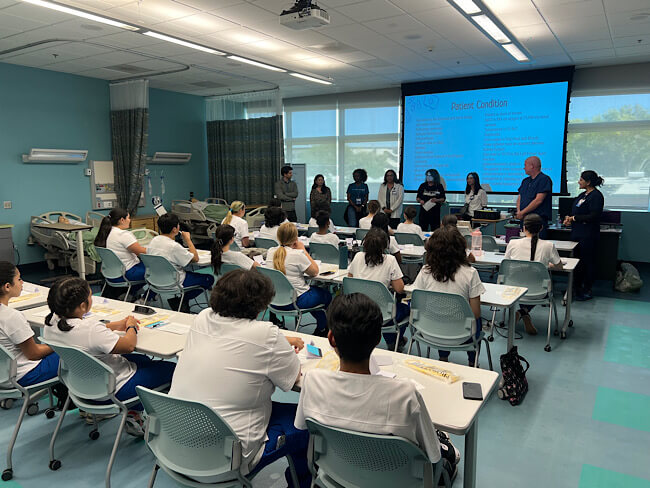
August 28, 2024
Simulation program lets students explore health care careers
Kaiser Permanente in Antelope Valley partnered with high schools to give …

July 22, 2024
Our nation’s health depends on well-funded research
Advanced medical science improves patient outcomes. We urge lawmakers to …

July 11, 2024
Transforming education and mental health in Watts
Our investment in the Watts neighborhood of California, in partnership …

June 28, 2024
Health Action Summit highlights mental health opportunities
The Kaiser Permanente Colorado Health Action Summit gathered nonprofits, …

June 19, 2024
Investments in Black community promote total health for all
Funding from Kaiser Permanente in Washington helps to promote mental health, …

May 24, 2024
Investing to meet health care needs
The new Wildomar Trail Medical Offices offer additional opportunities for …

May 7, 2024
Making cancer care more convenient in Southern California
Kaiser Permanente has opened a new Radiation Oncology Center at the Bellflower …

May 7, 2024
Can the badly broken prescription drug market be fixed?
Prescription drugs are unaffordable for millions of people. With the right …

April 25, 2024
Expanding access to cancer care in Southern California
Kaiser Permanente has opened a new Radiation Oncology Center and MRI Center …

April 12, 2024
It’s time to address America’s Black maternal health crisis
Health care leaders and policymakers should each play their part to help …

April 9, 2024
Building partnerships to inspire the next generation
Kaiser Permanente supports education and career opportunities for students …

March 26, 2024
Donations assure access to affordable health care
Kaiser Permanente grant and challenge spark $18.7 million for Denver Health’s …

March 19, 2024
Fostering responsible AI in health care
With the right policies and partnerships, artificial intelligence can lead …

March 18, 2024
Program helps member prioritize her health
Medical Financial Assistance program supports access to health care.

February 28, 2024
Partnership opens careers and capacity for dental in Oregon
Funding a training program with Portland Community College addresses critical …

February 26, 2024
Patients can apply for help with medical bills
Kaiser Permanente offers financial assistance for people struggling to …

February 13, 2024
A legacy of life-changing community support and partnership
The Kaiser Permanente Watts Counseling and Learning Center started as a …

February 12, 2024
Proposition 1 would bolster mental health care in California
Kaiser Permanente supports the ballot measure to expand and improve mental …

February 2, 2024
Expanding medical, social, and educational services in Watts
Kaiser Permanente opens medical offices and a new home for the Watts Counseling …

January 31, 2024
Prioritizing policies for health and well-being in Colorado
CityHealth’s 2023 Annual Policy Assessment awards cities for their policies …

January 29, 2024
Empowering minds to help others thrive
Supporting behavioral and mental health in communities where needs are …

January 22, 2024
Solutions for strengthening the mental health care workforce
Better public policies can help address the challenges. We encourage policymakers …
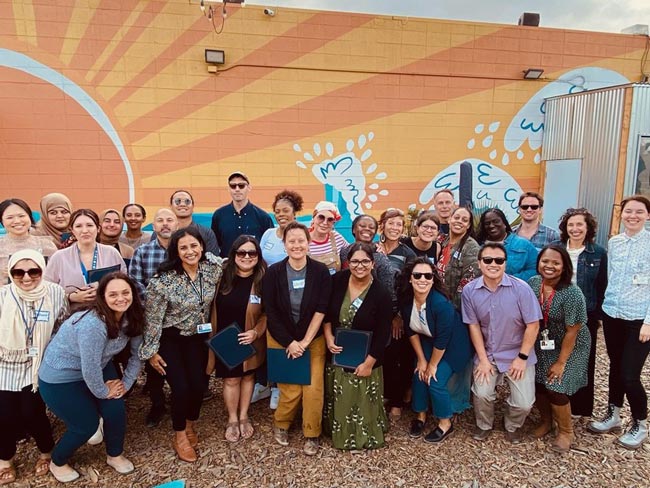
January 3, 2024
Addressing the shortage of mental health workers
There aren’t enough mental health professionals in the U.S. to meet the …

December 20, 2023
Funding solutions to end gun violence
Researchers and organizations are exploring inventive ways to reduce gun …
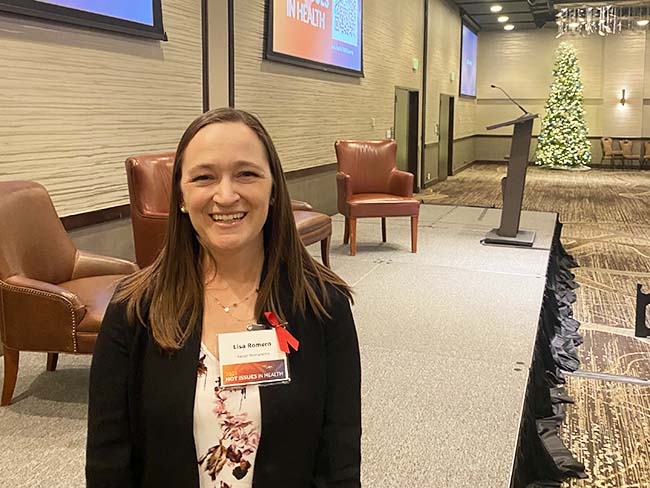
December 15, 2023
Climate change is already affecting our health
The health care industry is responsible for 8% to 10% of harmful emissions …

December 7, 2023
Safe, secure housing is a must for health
We offer housing-related legal help to prevent evictions and remove barriers …

December 6, 2023
Solid foundation: How construction careers support health
Steady employment can improve a person's health and well-being. Our new …

November 13, 2023
Congress must act to address drug shortages
Kaiser Permanente is working to address drug shortages and support policies …

November 1, 2023
Meet our 2023 to 2024 public health fellows
To help develop talented, diverse community leaders, Kaiser Permanente …

October 11, 2023
Bridging the mental health gap
Kaiser Permanente’s partnership with Fontana Unified School District brings …

September 13, 2023
Mental health champion: A mission inspired by personal loss
San Diego Wave Fútbol Club star defender Naomi Girma, Kaiser Permanente …

September 6, 2023
Advancing mental health crisis care through public policy
Organizations that provide public mental health crisis services must work …

August 28, 2023
Grants improve the total health of our communities
Kaiser Permanente increases access to mental health services in Southern …

August 22, 2023
Mental health
Expanding access to high-quality mental health services

August 21, 2023
Engaging the future health care workforce
Students from Whittier College in California had the opportunity to shadow …

August 2, 2023
Social health resources are just a click or call away
The Kaiser Permanente Community Support Hub can help members find community …

July 11, 2023
Our prescription for safe, effective, more affordable drugs
Our approaches ensure effectiveness and safety, and drive cost savings. …

June 30, 2023
Our response to Supreme Court ruling on LGBTQIA+ protections
Kaiser Permanente addresses the Supreme Court decision on LGBTQIA+ protections …

June 28, 2023
Making waves to empower young girls
Kaiser Permanente and the San Diego Wave Fútbol Club host a second Wave …

June 20, 2023
Helping entrepreneurs in under-resourced communities
Kaiser Permanente's support of Inner City Capital Connections program helps …

May 30, 2023
Kaiser Permanente commits up to $10 million to Denver Health
Funding comes as Denver Health provided $120 million in uncompensated care …

May 22, 2023
Investing and partnering to build healthier communities
Kaiser Permanente supports Asian Americans Advancing Justice to promote …
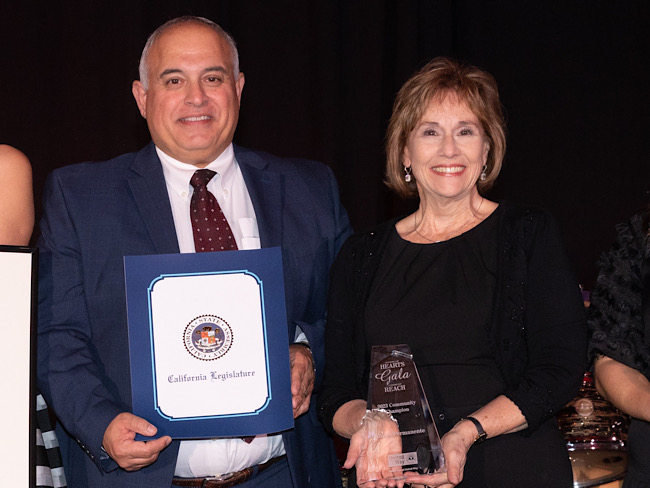
May 19, 2023
Partnering to improve the health of homeless individuals
Grant funds will combat housing inaccessibility and improve health care …
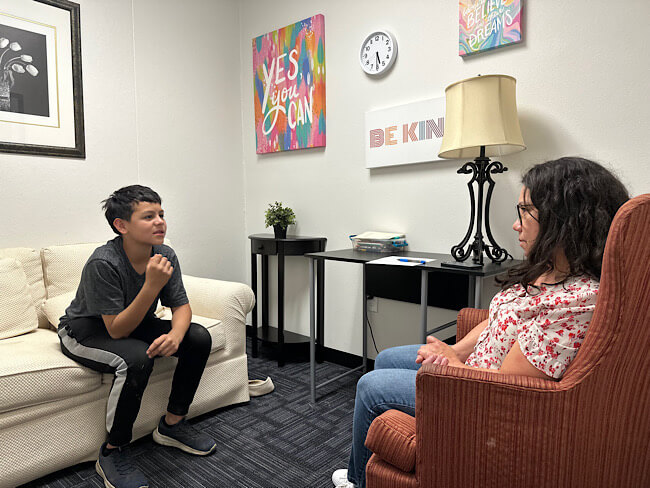
May 18, 2023
Addressing mental health trauma in a local community
Trauma-informed outreach efforts in Orange County are being recognized …

May 16, 2023
Managing trauma does not need to be traumatic
Expanded access to high-quality, affordable mental health care supports …

May 11, 2023
COVID-19 testing, testing — Get results in 1, 2, 3
Testing is the most important way you can help control the spread of COVID-19.

May 8, 2023
The U.S. needs more mental health workers: How we’re helping
We’re supporting the well-being of our members and communities through …

April 11, 2023
Collaboration is key to keeping people insured
With the COVID-19 public health emergency ending, states, community organizations, …

February 24, 2023
Nurturing expectant moms who have substance use disorders
Project Nurture in Portland, Oregon, provides treatment and a path forward …

January 17, 2023
Lawmakers must act to boost telehealth and digital equity
Making key pandemic-era telehealth policies permanent and ensuring more …

November 14, 2022
It’s time to rethink health care quality measurement
To meaningfully improve health equity, we must shift our focus to outcomes …

November 8, 2022
Protecting access to medical care for legal immigrants
A statement of support from Kaiser Permanente chair and CEO Greg A. Adams …

October 21, 2022
Kaiser Permanente therapists ratify new contract
New 4-year agreement with NUHW will enable greater collaboration aimed …

October 5, 2022
Safe travels: Our members now have more U.S. care options
Need urgent care in Florida? Michigan? Alaska? Here are 2 ways we’ve made …

August 16, 2022
Our support for the Inflation Reduction Act
A statement from chair and chief executive Greg A. Adams on the importance …

May 2, 2022
How to transform mental health care: Follow the research
We applaud President Biden and Congress as they begin to set policies that …

March 22, 2022
NUHW psych-social employees ratify agreement
The agreement between Kaiser Permanente and the NUHW in Southern California …

March 22, 2022
Our commitment to equity and our LGBTQIA+ communities
A statement from chair and chief executive officer Greg A. Adams.
February 14, 2022
Health care scholarships available
Kaiser Permanente in Hawaii to provide up to $100,000 in scholarships to …
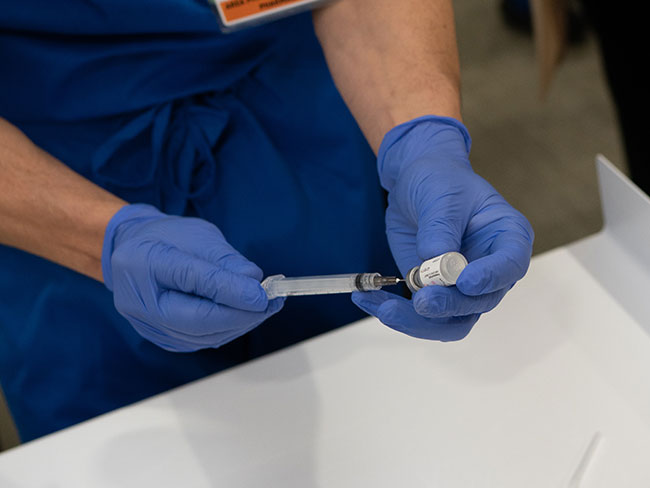
October 12, 2021
Beyond advocacy: Requiring vaccination to stop COVID-19
Kaiser Permanente and other leading companies are mandating COVID-19 shots …

July 7, 2021
Achieving health equity
Equal medical care is not enough to end disparities in health outcomes.